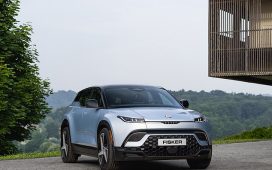A group of researchers has found that rats are not just capable of operating tiny cars but seem to thoroughly enjoy the experience.
This groundbreaking study was led by neuroscientist Kelly Lambert from the University of Richmond.
It provides fascinating insights into how animals engage with their environment, develop new skills, and even find joy in unexpected activities.
Teaching rats to drive
The study began in 2019, with Lambert and her team designing tiny cars for the rodents. The research aimed to explore how animals learn new skills and how their environment influences their behavior. The project gained widespread attention in 2022 and even featured in a Netflix documentary.
What’s most surprising is that the rats didn’t just tolerate the training, they appeared to enjoy it.
“Unexpectedly, we found that the rats had an intense motivation for their driving training, often jumping into the car and revving the ‘lever engine’ before their vehicle hit the road,” Lambert wrote in The Conversation.
The training involved teaching the rats to associate driving with a reward—Froot Loops. The rodents learned to operate the cars using a lever system, driving toward the treat.
However, their enthusiasm for the activity went beyond simple Pavlovian conditioning.
Excitement beyond the reward
Lambert observed behaviors that suggested the rats were excited about the driving experience itself, not just the treat waiting at the finish line.
“The three driving-trained rats eagerly ran to the side of the cage, jumping up like my dog does when asked if he wants to take a walk,” Lambert wrote.
She pondered whether their behavior was purely driven by anticipation of the reward or if they genuinely enjoyed the activity. “Whatever the case, they appeared to be feeling something positive—perhaps excitement and anticipation,” she added.
Her team’s findings suggest that operating the vehicles might stimulate the rats’ brains, offering a sense of satisfaction and engagement beyond immediate gratification.
“Rather than pushing buttons for instant rewards, they remind us that planning, anticipating, and enjoying the ride may be key to a healthy brain,” Lambert wrote.
The science behind the fun
The idea for the study originated from former University of Richmond psychology professor Beth Crawford. Although Lambert initially dismissed the suggestion, she later recognized its scientific potential.
“It’s an interesting, complex task about movement and travel. It’s about moving in time and space, but not moving the body,” Lambert told The Collegian in 2020.
The research has implications far beyond the spectacle of rats in tiny cars. It sheds light on how learning new skills can stimulate the brain and how animals, like humans, might find joy in mastering challenging tasks.
The team’s findings add to the growing body of evidence showing that cognitive development and emotional engagement are interconnected. Whether it’s the excitement of a Froot Loop or the sheer thrill of hitting the road, these rats have demonstrated that sometimes, the journey is just as rewarding as the destination.











